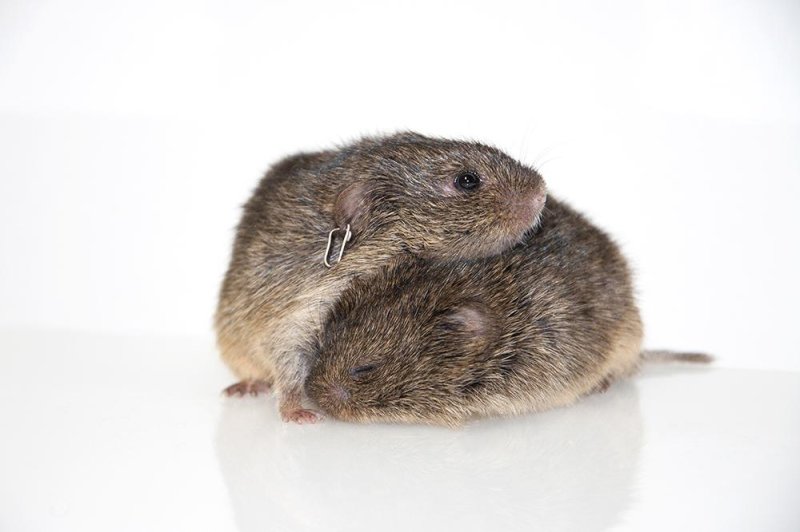An earring-like tag helped scientists identify individual voles. Photo by Aubrey Kelly/Cornell University
AUSTIN, Texas, Dec. 14 (UPI) -- Until now, biologists thought prairie voles were strictly monogamous. But new research suggests some are hard wired to stray.
When scientists combined lab experiments and field observations with brain scans, they determined that male voles' sexual strategies are dictated by genetic differences. The researchers published their findings last week in the journal Science.
About half the male prairie voles in the study regularly left their mates to look for more partners, while the other half stuck close to the nest.
Researchers say the even split isn't random, but a spread directed by nature.
"This brain variation isn't just there by chance. It isn't random," the study's lead researcher Steven Phelps, an associate professor of integrative biology at the University of Texas, said in a press release. "It's actually something that selection has kept around for a very long time. When it comes to social behavior, maybe there isn't a normal brain."
Scientists say the even distribution has to do with each strategy's trade off. Cheaters gain the benefit of spreading around their genetic material. But when they're off looking for new partners, they're not watching their mate back at the nest -- who may be receiving a new partner herself.
The findings are unique in that they run counter to the idea that evolution favors genetic predictability or conformity -- not variability.
"All of animal neuroscience is kind of predicated on minimizing genetic variation," said Phelps. "When we did this simple thing of going out in nature and looking at the brain, we were shocked at what we found."
The findings suggest adaptation encourages genetic diversity within the species.
"I wouldn't be surprised if there were many genes whose variants have been kept around by selection in a similar way," added Phelps. "We may find this to be a common pattern in social behavior, including personality differences, in lots of species."















